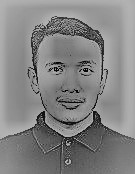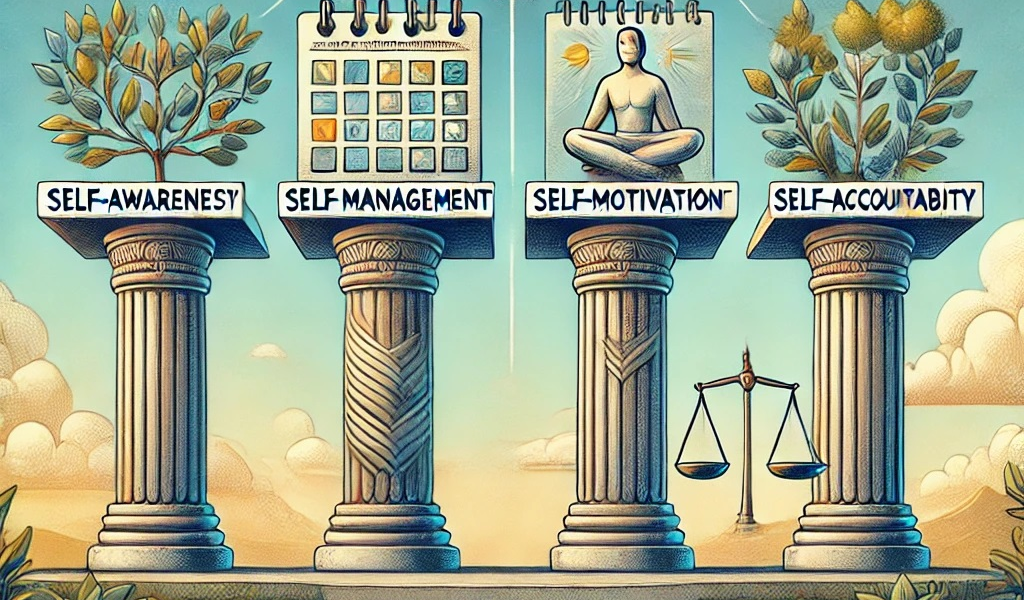
DR. MUHAMMAD KHATIBSYARBINI
Senior Lecturer at Universiti Teknologi Malaysia
Holds a Bachelor’s degree in Computer Science, specializing in Software Engineering, Master degree in Software Engineering and also a Doctorate specializing in Software Engineering. All from the Universiti Teknologi Malaysia, Johor. Recently appointed as Senior Lecturer at Universiti Teknologi Malaysia. Previously worked as software architect with 2 years of industry experience. Special interest in Artificial Intelligence (AI) processing in real software development application. Also experienced in embedded software, consulting and teaching. Academic niche area in software engineering, string distance metrics and AI algorithms specifically in swarm intelligence and machine learning.
As a senior lecturer at a research university, my leadership approach is centered on self-awareness and continuous personal growth. To guide this development, I reflect on the Four Pillars of Self-Leadership: self-awareness, self-management, self-motivation, and self-accountability.
The Four Pillars Details Are As Follows:

Self-Awareness
I excel in being aware of my strengths, especially in consulting and motivating students. I am adept at understanding their academic needs, providing guidance, and inspiring them to achieve their goals. However, I recognize that I can further improve in identifying personal biases that may influence my interactions.
Self-Management
My ability to manage my workload and prioritize tasks is solid, particularly in student consultations. However, as a senior lecturer, balancing administrative duties with research can be challenging. I aim to enhance my time management by delegating tasks more effectively and setting clearer boundaries between teaching and personal time to avoid burnout.
Self-Motivation
I find deep motivation in helping students succeed, which keeps me driven in my role. This intrinsic motivation has been my anchor during demanding academic periods. To improve, I need to channel this motivation into my own research and professional development by setting more ambitious personal goals and embracing opportunities for self-growth beyond student-related tasks.
Self-Accountability
While I am accountable to my students and institution, I can enhance my accountability in research output. By establishing clearer benchmarks for my scholarly work and seeking more peer feedback, I will hold myself to higher standards in all areas of my academic career. This will also increase my impact in my field, aligning my leadership role with institutional goals.

Teaching Philosophy
As an educator, I believe that teaching is not merely the transfer of knowledge but the cultivation of a student’s ability to think critically, innovate, and apply learning in meaningful ways. My teaching philosophy is anchored in TWO key principles: lifelong learning, and mentorship.
Lifelong Learning and Growth
Education doesn’t stop at the classroom door; it’s a lifelong journey. I encourage students to embrace learning as a continuous process of discovery and personal growth. By instilling this mindset, I help them develop the adaptability and resilience needed to thrive in an ever-evolving world. I strive to lead by example, staying current with emerging trends in my field and incorporating new research into my teaching practice.
Mentorship and Motivation
One of my greatest strengths as an educator is my ability to consult and motivate students. I create a supportive environment where students feel comfortable seeking guidance. Through one-on-one mentorship, I help them navigate academic challenges, explore research opportunities, and define their career aspirations. My goal is to inspire students to believe in their potential and to push beyond their perceived limitations.
In sum, my teaching philosophy is rooted in fostering critical thinkers and lifelong learners through a meaningful mentorship. My ultimate goal is to equip students with not only the knowledge but also the confidence and skills to succeed in their academic and professional lives.
MY TEACHING PORTFOLIO
As a newly appointed senior lecturer, I have gained experience in teaching three subjects: Programming Technique 1, Software Design and Architecture, and Real-Time Software Engineering.
Programming Technique 1
This foundational course introduces students to the principles of programming, with a focus on building a strong foundation in problem-solving techniques. Core programming concepts, such as control structures, functions, and basic data structures, are taught using a high-level programming language. Hands-on practice is emphasized through lab sessions and projects that encourage collaboration and innovation.
Software Design and Architechture
This course covers the fundamental principles of software architecture and design, preparing students to create well-structured, maintainable software systems. Students are guided through architectural patterns, design principles, and techniques for evaluating software quality. To encourage deeper understanding, group projects that simulate real-world design challenges are incorporated, allowing students to apply theoretical concepts in a practical context.
Real Time Software Engineering
This advanced course explores the intricacies of designing and developing software systems that meet real-time constraints. The course addresses the unique challenges of real-time systems, such as timing analysis, concurrency, and resource management. A case-study-based approach, combined with project-based learning, allows students to design, implement, and test real-time systems in simulated environments.
